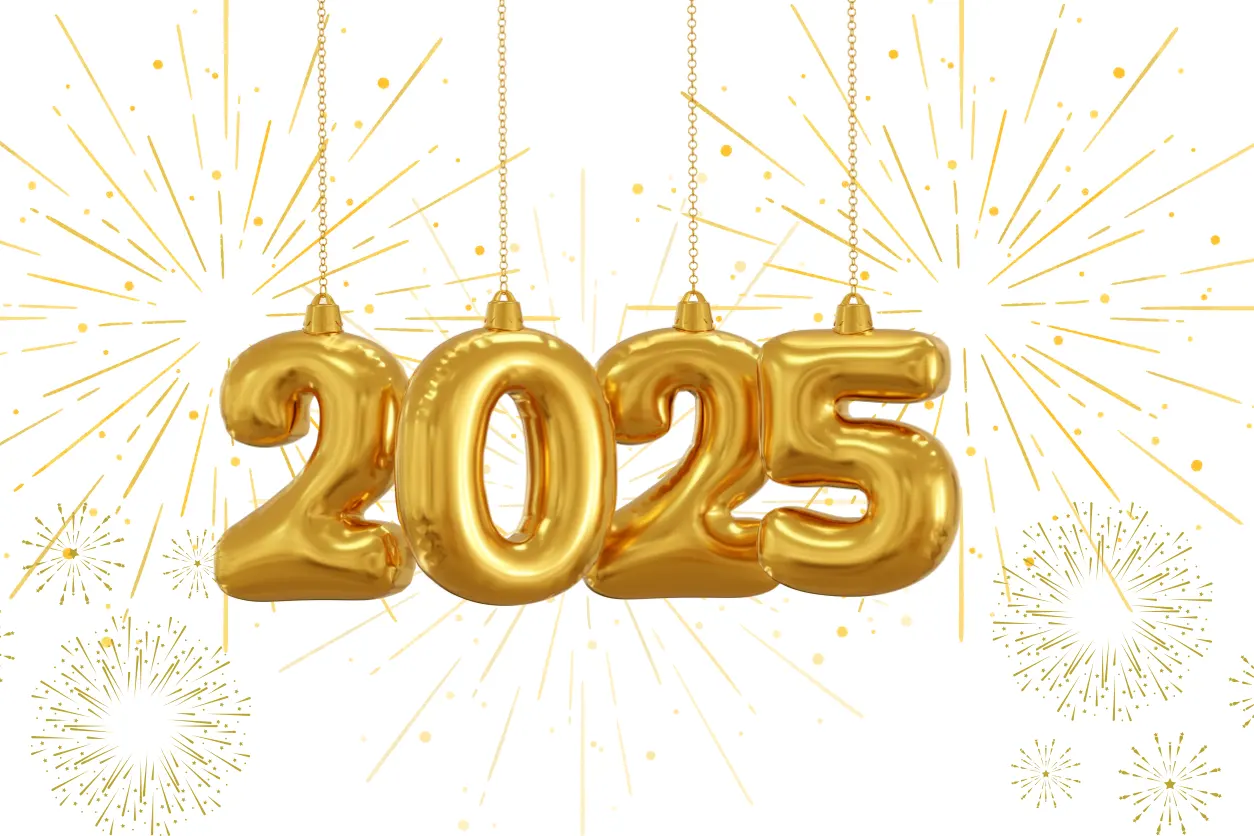
For people in recovery, especially newly sober, New Year is one of the most challenging obstacles.
It’s a time of year that fuels and accepts heavy alcohol consumption and the repercussions that come with it. Binge drinking is heavily normalised, as are days upon days of alcohol consumption across the festive period.
Whilst many will choose to spend their New Year’s Eve drinking, there are ways to avoid such influences and expectations.
Instead of entertaining the stereotype of New Year as an alcohol-fuelled celebration, embracing it as sober will be a better option for your recovery journey. Starting 2025 as sober as possible is a good starting point for change.
In this blog, we’ll discuss how to stay sober at New Year’s and carry forward your new intentions into everyday life.
Staying Sober At New Year: Why It’s Important
Most people easily justify changing their routines and drinking habits during the festive season. ‘It’s Christmas’ is an excuse used for nearly everything throughout December, including the New Year.
However, using the same excuse as a recovering addict is dangerous and damaging. Justifying a change in routine and behaviour for a set period can trigger a relapse. It can be easy to get carried away once the addictive feelings of alcohol return.
Therefore, staying sober across the New Year celebrations is necessary to not only remain on track but also set the scene for the following year. Switching from festive habits to New Year’s resolutions can be much easier for the average person. Yet, to switch with an addictive personality or triggers can be extremely difficult.
The New Year is a positive, motivating, and refreshing time to embrace recovery truly. Many other people will be making some lifestyle changes, whether recovering themselves or getting healthier. Starting now is wise to avoid undoing the effort and work, especially as newly sober.
Why Support Matters During Recovery
Building and maintaining sobriety often hinges on having a strong support network. The New Year period can amplify the need for this.
In the context of sobriety, social support can mean family, friends, sponsors, and even online communities who understand and really respect your journey. These individuals or groups can help mitigate the stressors or triggers that typically surface during festive times.
One way to utilise social support is by discussing your concerns and setting boundaries with those closest to you before the celebrations begin. This proactive communication not only reduces anxiety but also encourages a real understanding among your circle. So, for example, let friends know that alcohol-free alternatives will help you stay comfortable.
If you’re looking for people going through something similar, consider joining online support groups or forums that focus on sobriety. Many of these groups host virtual or in-person meetups, which offer a lifeline of connection to those who might otherwise feel isolated.
Social support is not just about having people around you. It’s about ensuring these individuals align with your sobriety goals. Invest time in identifying people who uplift and motivate you to remain focused.
Navigating Alcohol-Free Spaces: Practicing Practical Strategies
As someone in recovery, it’s essential to see New Year for what it is. It’s a celebration of a new chapter, which can kickstart new goals, outlooks, and habits. It’s a motivating time full of resolution and change. However, celebrating sobriety also often means learning how to handle environments that are heavily associated with alcohol.
These situations are likely to feel daunting, especially for those new to sobriety. But with preparation and precise strategies, they can be navigated successfully.
The first step is practising assertiveness. If someone offers you a drink, having a confident response ready can ease the interaction. Statements like “I’m taking a break from alcohol” are simple yet effective ways to decline the offer politely without inviting further questioning.
Assertiveness aside, make sure you have a soft drink in hand. This will help you blend into the social atmosphere without feeling out of place. Many people won’t even notice what’s in your glass, which can relieve some social pressure.
Setting boundaries is another essential tactic. Decide in advance how long you will stay at an event or how to exit gracefully if you begin to feel uncomfortable. Having a plan for transportation or an exit strategy empowers you to leave without guilt or hesitation when needed.
Finally, focus on the non-alcoholic aspects of the celebration. Engage in conversations, enjoy the food, or participate in games or activities. Redirecting your attention to these aspects helps you stay present and enjoy the evening without the need for alcohol.
10 Tips on How to Stay Sober this New Year
With preparation and mindfulness, sober celebrations become not just manageable but genuinely enjoyable. Here are ten additional tips that can help you stay on track.
Plan Your Celebrations
Although you may be suffering from alcohol abuse or may be newly recovered, you can still celebrate this New Year.
By planning your celebrations in advance, you can avoid influential settings or activities by opting for sober celebrations. The New Year can be welcomed in a sober state, instead embracing and taking in the cheer. Plan your setting, plan who you’ll be with and plan what alcohol-free drinks you will have.
Be the Designated Driver
If you’re feeling any urges or feel uncomfortable sharing your struggles, you can instead be the designated driver this New Year.
By planning to drive, you’ll have a motivation to remain sober and to help your loved one’s home safely.
Know Your Triggers and Act on Them
You’ll likely be out of routine, to some degree, at your New Year celebrations. Being out of routine as newly sober can be very vulnerable.
Triggers which you can usually control or stay away from may surface. Being aware of your triggers is very important, along with having a relapse prevention plan in place.
To stay sober, you’ll need to take action as soon as possible, whether that’s through an exit strategy, a set of coping techniques or by reaching out for help.
Don’t Entertain Plans That Could Be Damaging to Your Sobriety
If you’re worried about feeling triggered by high-alcohol exposure, it’s best to avoid any risky plans.
If you’re new to recovery, it’s always best not to entertain plans which will motivate your desire to consume alcohol. Even if you feel strong and well in yourself. This is because you may not know all of your triggers just yet.
For example, avoid stressful situations, avoid alcohol-fuelled settings, and avoid being with people who are negligent and uncontrollable around alcohol.
Rely on Those You Trust
As we touched on earlier, support matters.
Whether it’s your friends and family, a sponsor, or a support group, this is the time to rely on those you trust. To stay sober at New Year, you’ll need to share your concerns, you’ll need a support network to contact, and you’ll need people who care, understand, and support you through your choices.
It’s also wise to spend some time with sober friends who have the same outlook as you on alcohol.
Focus On Your Long-Term Recovery Goals
New Year celebrations are for one night. Sobriety is for the long term. It can be helpful to think about this when it comes to trying to shift your perspective.
By instead focusing on your long-term recovery goals, you’ll have the inspiration to make mindful, rational decisions about your plans. Highlight your reasons for staying sober.
Avoid the Fantasy of New Year’s Eve
New Year’s Eve is often built up as a big event, and there’s a fantasy-like feel about it.
Whilst it’s always nice to celebrate, there are also many pressures and expectations around the night. It can be easy to get caught up in the norms of the New Year. Instead, avoiding the fantasy is recommended by focusing on your traditions.
Creating Your Own New Year’s Rituals
Leading on from the above, breaking away from alcohol-centric celebrations allows you to redefine what the New Year symbolises for you. Sobriety also opens the door to creating personal traditions that really reflect your values, aspirations, and new lifestyle.
Custom rituals not only help you stay focused on your journey but also provide fulfilling and meaningful ways to celebrate. Some examples to idea might include:
- Writing down lessons from the past year and intentions for the upcoming one.
- Engaging in acts of service and helping those who may need support.
- Introducing a wellness-focused tradition for you to do every year, such as hosting a sober get-together that centres around gratitude.
Go to a Sober New Year’s Support Event
Sober New Year’s Eve events are a thing. Most AA and NA meeting groups will arrange an event, acting as a safe place for people who are recovering from addiction.
You may even have a group of sober friends who will also welcome the celebrations as alcohol-free. It’s essential to have as expected of a night as possible if you are worried about missing out, yet by minimising risks.
If You Relapse, Don’t Lose Hope
A relapse doesn’t define your journey or erase the progress you’ve made. So, if you do everything to prevent risking your sobriety and still find yourself slipping during New Year’s Eve, the most important thing is to treat yourself with compassion and not give up.
Acknowledge what happened without judgment, reflect on the circumstances, and reach out to someone you trust for support. Use the experience as an opportunity to learn and strengthen your strategies for the future.
Recovery is a process, and every step forward counts, even after a setback like this.
Access Support at Action Rehab Today
If you are worried about how your celebrations will pan out or hope to attend alcohol rehab in the New Year, we’re here to help you.
Confidential advice on manoeuvring through this time of year will be available, along with instructions on how to maintain sobriety on any average day. Support groups, therapy sessions, educational sessions and comprehensive rehab programmes can be arranged through our network.
Whilst potentially different from previous celebrations, staying sober during the New Year will benefit your long-term recovery journey. Call us on 0151 268 6992 for more information on how we can support you.
Posted on Wednesday, December 18th, 2024 at 10:10 am in Alcoholism, Latest News.






 Call Us
Call Us Contact Us
Contact Us